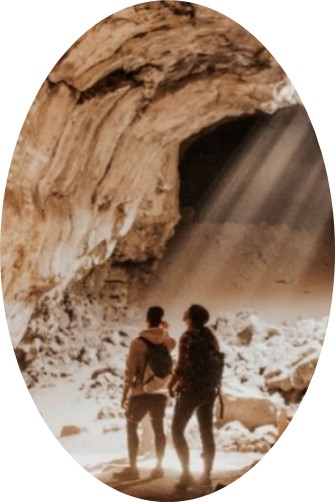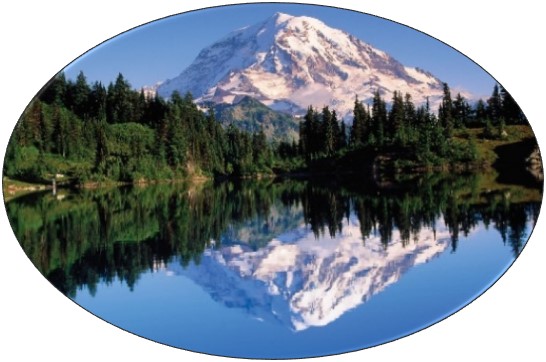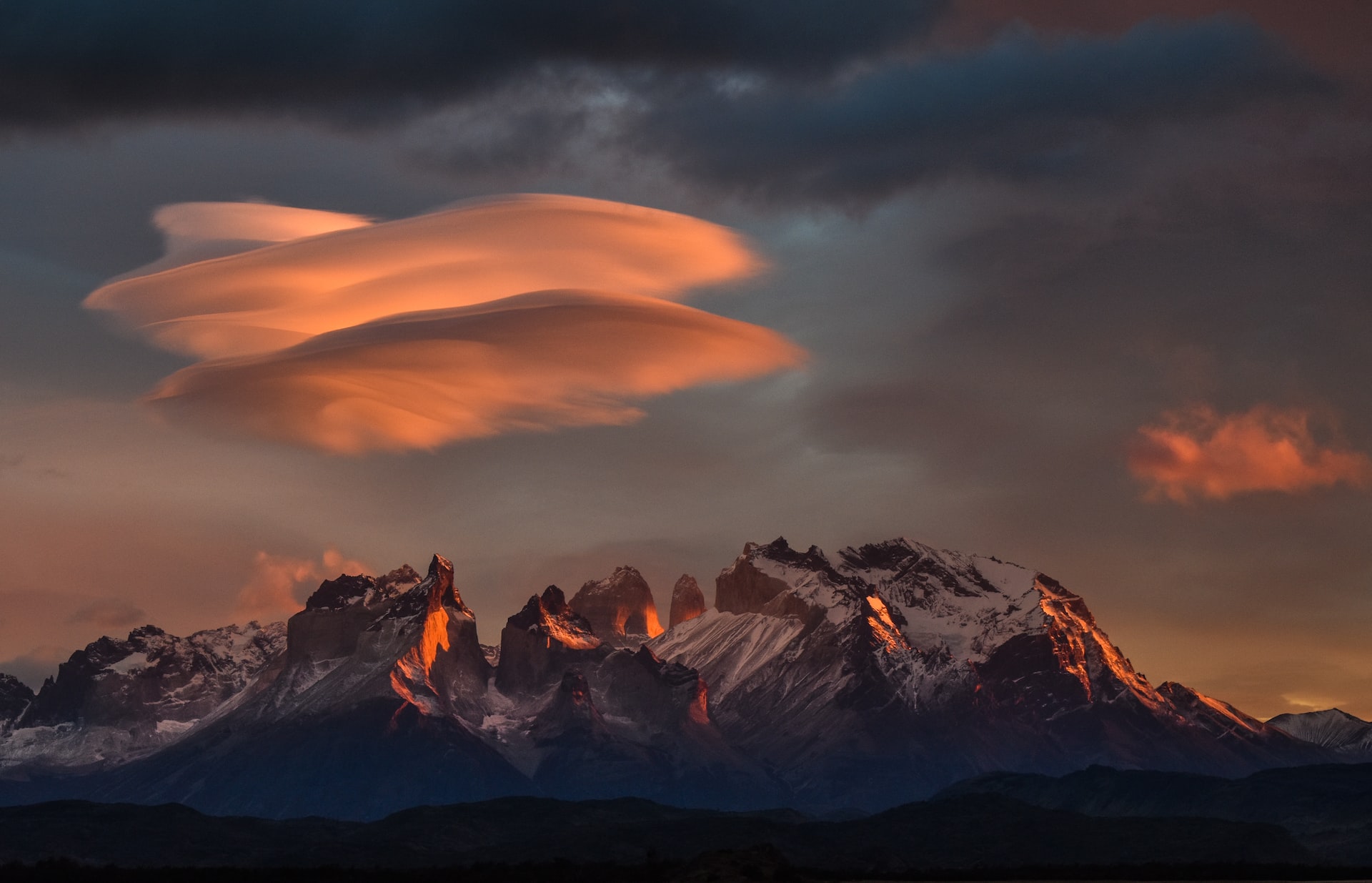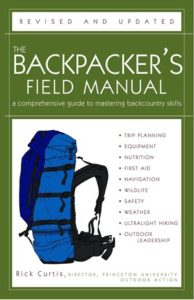“I love to think of nature as an unlimited broadcasting station, through which God speaks to us every hour, if we will only tune in.”
— George Washington Carver
In this age of over-polarization and division, Outdoor Education programs offer a compelling option. The unity and teamwork required for wilderness survival is a refreshing and welcome antidote to the stress and alienation of world events and social media pressures. Now, more than ever, in the post-pandemic environment, students and parents are reevaluating their college tuition investment. In this context, Outdoor Adventure in Higher Learning experiences provide group members with a wide variety of physical, intellectual, emotional, and spiritual moments of engagement — catalysts for the development of leadership, ingenuity, resilience, compassion, and regenerative outdoor adventure learning skills.

It has been over 25 years since we first discovered Outdoor Adventure Leadership programs in Northern California. Back then, we toured a local college campus and gazed upon surrounding Cascade Mountain Range, rivers, and lakes. After California, we visited a number of other Outdoor Adventure colleges and universities in Maine, Minnesota, Montana, New York, Vermont, Wisconsin, and Wyoming.
The best Outdoor programs connect the practical application of wilderness theory with actual hands-on outdoor safety, survival, and first aid skills. Student linkage between classroom and fieldwork is enhanced by outdoor wilderness “learning by doing” experience. Over time, these students gain confidence through outdoor adventures like rock-climbing, mountaineering, kayaking, and wilderness expeditions.
Of enduring value, students foster healthy relationships in the natural setting of their outdoor environment. Early on, students are encouraged to learn with and from one another, and to make their outdoor higher learning purposeful and impactful.
Fast forward to the 2023 – 2024 Academic Year, and the health benefits of Outdoor Adventure Learning are now widely recognized. We learned from “Helping factors in an Outdoor Adventure Program”, Gargano, V., & Turcotte, D. (2021). Helping factors in an outdoor adventure program. Journal of Social Work, 21(1), 88-106. that outdoor adventure promotes self-understanding, interpersonal learning, socializing, and cohesion. Altruism, imitative behavior, universality, and imparting information were also important. In the same vein, AstroCamp, reported: “Outdoor adventure education supports emotional, physical, and intellectual growth in children, instilling in them a “can-do” attitude that they can apply to all aspects of their lives”.

Importantly, students develop life skills in leadership, decision-making, and group facilitation. Upon graduation, these students are well prepared to lead adventure-based outdoor programs in National Parks, State Forests, Family Recreation Centers, Corporate Retreats, Resorts, Rescues, and Outdoor Mountaineering.
In “Make Outdoor Learning Your Plan A”, Harvard Graduate School of Education, August 18, 2021, Andrew Bauld reports: “Research has shown that outdoor learning can have huge benefits on student mental health and academic performance. Students are often calmer and better able to focus when learning in nature…”
Last year, we connected with colleagues from Simpson University in California. What stood out about Simpson was the breadth and depth of their Wilderness Immersion Semester. At the end of the journey, students develop leadership skills like mutual respect, resourcefulness, self-discovery, teamwork, and an abiding respect for Planet Earth.
Outdoor Leadership Professor Dr. Scott Barnett (August 24, 2023) provided this snapshot:
“Outdoor leadership prepares students to be the kind of people who will make a difference in the world. It equips them with critical thinking and problem-solving skills, instills sound judgement and decision-making, teaches them how to lead and work with others, and builds resilience to keep pushing through challenges.”
A recent outdoor class experienced the spectacular beauty of Joshua Tree National Park, Smith Rock State Park (Oregon), Lassen Volcanic National Park, Desolation Wilderness, Lake Tahoe and Mount San Jacinto State Park. This team discovered memorable mountain vistas, swam in pristine lakes, and met the extremes of high desert – surrounded by splendid isolation.
Dr. Nicholas Covino, President of William James College had this to say about Outdoor Learning (August 24, 2023):
“Outdoor physical activity lowers blood pressure and improves mood. The mental and physical challenges facilitate bonding and increase feelings of mastery and self-esteem. Adventure learning programs offer an antidote to the isolation and stress exacerbated by the pandemic.”
The most successful Outdoor Adventure Leadership Programs inspire student engagement in Community Service. By way of illustrative example, Outdoor Leadership students participate in environmental backpack expeditions along Northern California’s coast to combat invasive species and clear and clean trails.
The positive advantages of outdoor adventure programs are well researched, documented, and memorialized in articles: “Outdoor Adventure Builds Resilient Learners for Higher Education”, Sports, NIH, Allan JF, McKenna J. Outdoor Adventure Builds Resilient Learners for Higher Education: A Quantitative Analysis of the Active Components of Positive Change. Sports. 2019; 7(5):122.
“Social Psychological Benefits of a Wilderness Adventure Program”, USDA Forest Service Proceedings”, Paxton, Todd; McAvoy, Leo H. 2000. Social psychological benefits of a wilderness adventure program. In: McCool, Stephen F.; Cole, David N.; Borrie, William T.; O Loughlin, Jennifer, comps. 2000. Wilderness science in a time of change conference Volume 3: Wilderness as a place for scientific inquiry; 1999 May 23 27; Missoula, MT. Proceedings RMRS-P-15-VOL-3. Ogden, UT: U.S. Department of Agriculture, Forest Service, Rocky Mountain Research Station. p. 202-206.
At the end of the day, what distinguishes successful outdoor adventure learning programs is the authenticity of learning to live and learn with others in mutual respect, trust, and compassion in the post-pandemic ecosystem.
Simpson President Norman Hall (August 24, 2023) summed it up nicely this way:
“It was an easy decision to prioritize our Outdoor Leadership program, one of our destination value propositions, where students can learn about themselves… and acquire critical competencies to impact a world aching for courageous leadership.”
James Samels is President and CEO of the Education Alliance and senior partner in the law firm of Samels Associates.
Arlene Lieberman is senior consultant of The Education Alliance and senior associate in the law firm of Samels Associates.
Jacob Brewer is a graduate of the University of Chicago and Alliance Research Fellow.

